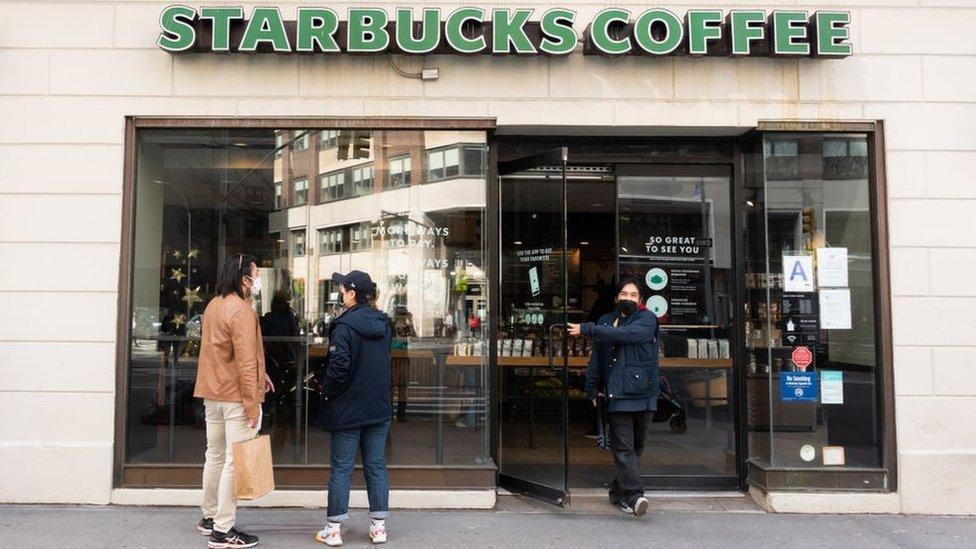Starbucks faces drinks ingredients shortage in US
- Published

Starbucks has been hit by supply shortages in the US meaning some drinks are unavailable for customers.
The coffee chain said it was seeing "temporary supply shortages" for items such as oat milk.
A Starbucks spokeswoman said: "Specific items will vary by market and store, and some stores will experience outages of various items at the same time.
She apologised for any "inconvenience" faced by customers and said it was working with vendors to restock items.
Starbucks customers in the US who open the firm's app are also currently greeted with a message apologising for any shortages.
Other than oat milk, Starbucks would not confirm which other ingredients were affected.
But an internal memo, seen by Business Insider, external, suggests that 25 different products are on a "temporary hold" including hazelnut syrup, chai tea bags and green iced tea.
Caffeine addicts on social media have also been complaining about not being able to order their favourite drinks.


Others said they had noticed that no caramel flavouring or lemonade was available in their local outlets.
Some members of staff also posted about the frustration of having to explain the situation to customers.
One wrote that the firm had not anticipated such a significant number of customers returning to cafes and restaurants as coronavirus restrictions ease.
The BBC asked Starbucks for specific details about why there were shortages.
The company said in an emailed reply: "The temporary supply shortages occurring in the US on some products is attributable to the supply chain constraints."
Earlier this week, it announced that customers in the US would be allowed to start using reusable cups again to get a discount on their drinks in company-owned cafes.
The Seattle-based firm is among a number of companies in the US facing supply chain issues and a shortage of workers in recent weeks.
Fast food firm Chick-Fil-A, for example, recently said "industry-wide" shortages meant it had had to limit dipping sauces, while Mexican chain Chipotle said it was raising prices across its menu by 4% to pay for wage increases and rising food costs.
- Published7 June 2021

- Published7 June 2021
